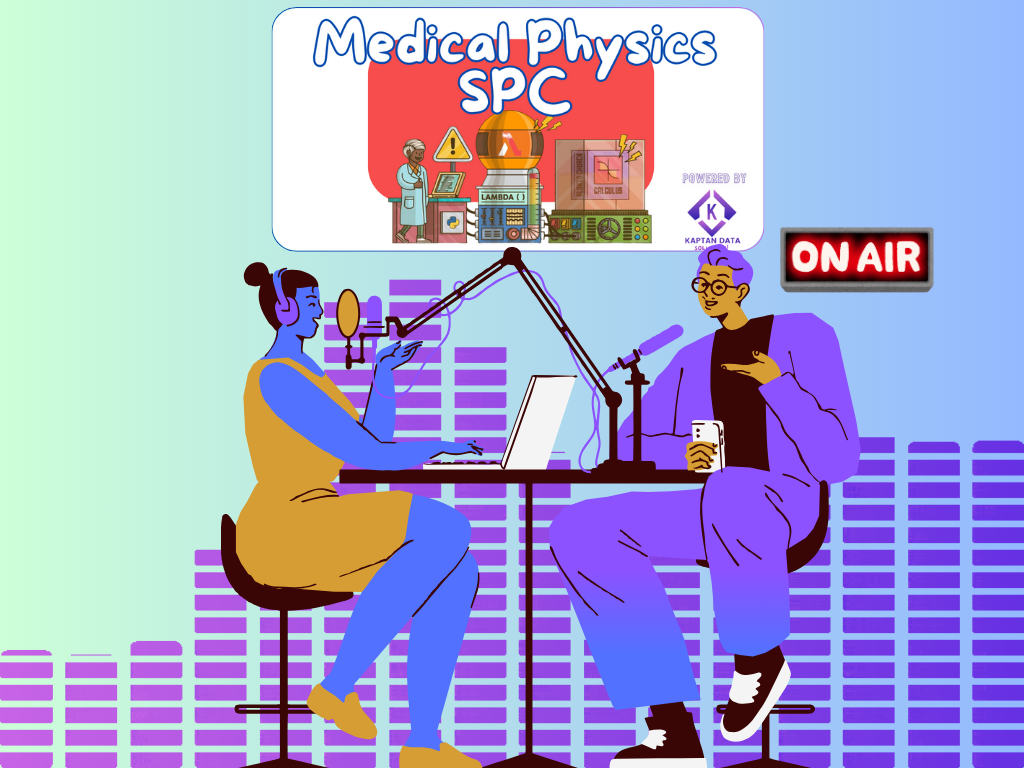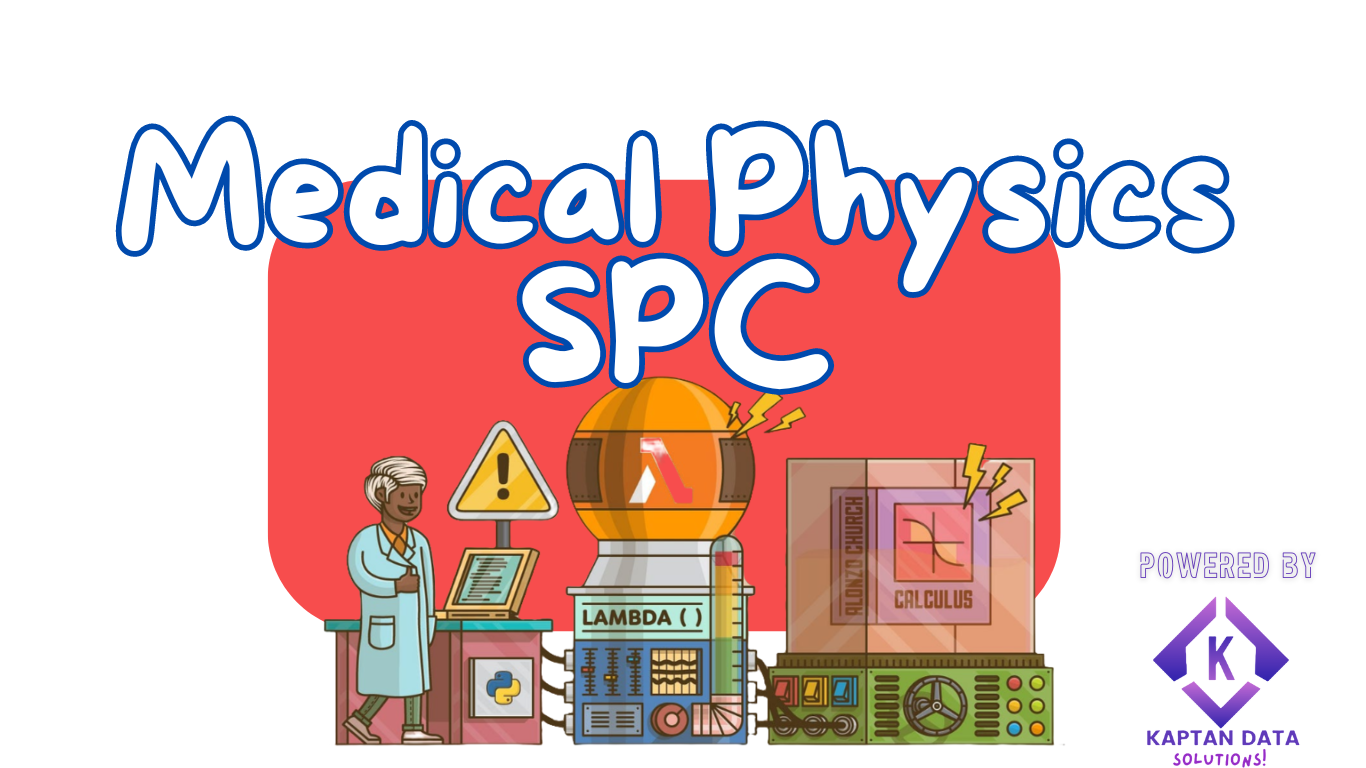🎧 Tune Into Our Latest Podcast: Revolutionizing Quality Control in Radiotherapy 🎧
In radiotherapy, precision is everything. With Kaptan Data Solutions, we’ve developed an Automated SPC Web Solution that pushes the boundaries of real-time data monitoring and automated reporting. Accessible across your center’s network, this cutting-edge tool transforms the way quality control is approached in radiotherapy.
🎙️ Join the conversation and discover how Kaptan Data Solutions is leading the way towards more accurate, reliable, and safe radiotherapy practices. You can also check out our demo on the Portfolio page to see the solution in action.
Don’t miss out on this exciting discussion!
🎧 Listen to the podcast now:

📥 Podcast Transcription
Precision in Radiotherapy with Kaptan Data Solutions
Alright, picture this. You have a patient undergoing radiotherapy, and everything hinges on precision. We’re talking millimeters, or even less.
The level of accuracy required is unbelievable.
Absolutely. And this is where quality control becomes absolutely critical.
I couldn’t agree more.
Today, we’re diving into how Kaptan Data Solutions uses something called SPC to make radiotherapy even more precise.
Yes, it’s fascinating to see how data is transforming healthcare, truly. And radiotherapy is no exception. What’s really interesting here is that we’re not just talking about the treatment itself, but the constant monitoring and adjustment of the whole process.
To ensure absolute precision.
Exactly. And of course, patient safety as well.
Absolutely. And to really understand all this, we’re going to dive into this article from KAPTAN DATA, published a few days ago on October 3, 2024. It was written by Kayhan, an R&D Technician at Hutchinson (Modeling, Algorithms, Validation) - Expert in Medical Physics Quality Control there. They’ve just launched this new automated SPC solution. And let me tell you, it’s getting people talking. Experts are excited about it. But before we get into the details, let’s explain what SPC really is.
What is SPC?
Sounds pretty technical, doesn’t it?
It sounds a bit intimidating at first. SPC stands for Statistical Process Control.
Catchy, right?
But honestly, while the name might sound a bit daunting, it’s actually a fairly simple concept. Think of it like baking a cake.
Alright, I like this comparison.
Every time you bake a cake, you want to get that perfect texture, that consistent taste. SPC is kind of like having a system in place that constantly checks the oven temperature, how you’re measuring the ingredients, even things like the humidity in your kitchen. It’s a way to ensure that every cake comes out as close as possible to the last one.
So, applying this analogy to radiotherapy, instead of cakes, it’s about making sure radiation beams hit the exact same spot every time.
Exactly. Consistency is key in radiotherapy. And Kaptan Data Solutions has developed software to do just that. And they’re not messing around. They presented their research at SFPM 2023.
Wow, that’s a big event.
Yes. It’s a major industry conference, showing that they are serious about this technology.
How the SPC Solution Works
Alright, so they’ve got the expertise, that’s clear. But how does this solution actually work in practice? The article mentions automated data analysis, and frankly, that can mean a lot of things nowadays. What’s happening behind the scenes?
It all boils down to minimizing human error, really, and biases too.
Exactly.
Exactly. It makes sense. You see, the system they’ve developed automatically pulls data from radiotherapy equipment and analyzes it in real time.
Wow.
And here’s the interesting part. One of the really cool things it does is it identifies and removes… outliers.
Outliers
Outliers? You mean those data points that seem way off from the others?
Exactly. Imagine you’re looking at a graph, okay? Most of the points form a tight cluster, but there are one or two sitting off in their own world. Those are your outliers. Now, the KAPTAN DATA system uses something called the IQR method. That stands for interquartile range, but it’s a bit long. Basically, it identifies and removes these outliers, so the analysis is based on the most accurate data possible.
It’s like the system knows which data points are just noise and which ones really matter. That’s something.
It’s really remarkable. And it gets better. You see, this real-time analysis isn’t locked to just one computer somewhere. The article mentions that you can access all this data from any computer connected to the network.
Wow. So, any computer in the hospital could potentially access this.
Exactly. Imagine, doctors, physicists, technicians… Everyone on the same page, literally, seeing how the equipment is performing in real time.
Impact on Documentation and Patient Safety
But speaking of reports, how does this system handle all the required documentation? There’s a lot of paperwork in healthcare.
Yeah, no kidding. That’s where the reporting feature comes in. You see, KAPTAN DATA’s solution generates really comprehensive PDF reports. You can customize them with notes and even add your own signature.
Oh, wow. So, it simplifies the whole documentation process.
Exactly.
Alright. So, it’s automated, accessible, organized. That’s fantastic. But let’s talk about the impact here. How does this translate to better outcomes for patients? What’s the “why” behind all of this?
Well, for starters, patient safety. Imagine you’re the physicist, right? And you’re responsible for calibrating this incredibly complex radiation equipment. With this system, you’re no longer just doing these periodic checks. You’ve got a constant stream of data telling you exactly how everything is working. The slightest deviation, even minor, you’re notified immediately.
It’s like having an early warning system for potential issues.
Exactly. And on top of that, it’s a super powerful system.
That must be a relief for the whole team.
Absolutely. And think about all the time and resources it frees up. Instead of manually collecting and analyzing data, your staff can focus on what really matters.
Which is?
Patient care. They can spend more time
🔍 Discover Kaptan Data Solutions — your partner for medical-physics data science & QA!
We're a French startup dedicated to building innovative web applications for medical physics, and quality assurance (QA).
Our mission: provide hospitals, cancer centers and dosimetry labs with powerful, intuitive and compliant tools that streamline beam-data acquisition, analysis and reporting.
🌐 Explore all our medical-physics services and tech updates
💻 Test our ready-to-use QA dashboards online
Our expertise covers:
🔬 Patient-specific dosimetry and image QA (EPID, portal dosimetry)
📈 Statistical Process Control (SPC) & anomaly detection for beam data
🤖 Automated QA workflows with n8n + AI agents (predictive maintenance)
� DICOM-RT / HL7 compliant reporting and audit trails
Leveraging advanced Python analytics and n8n orchestration, we help physicists automate routine QA, detect drifts early and generate regulatory-ready PDFs in one click.
Ready to boost treatment quality and uptime? Let’s discuss your linac challenges and design a tailor-made solution!

Comments